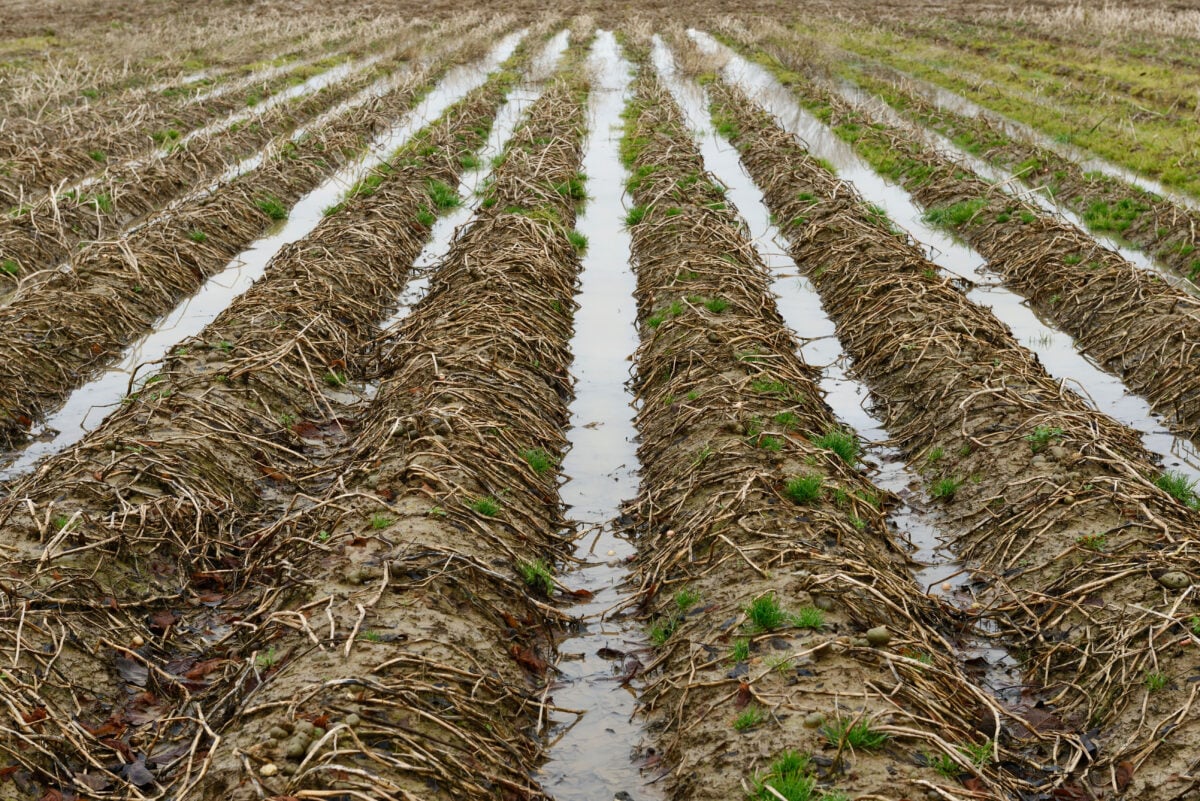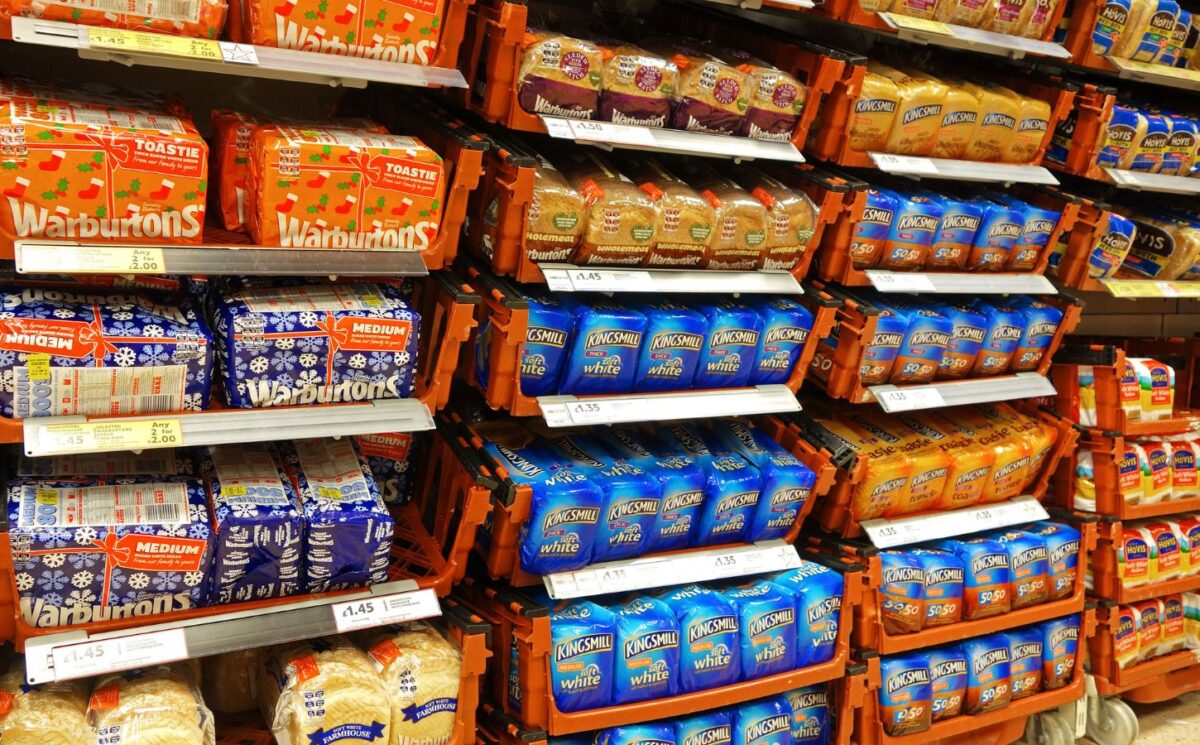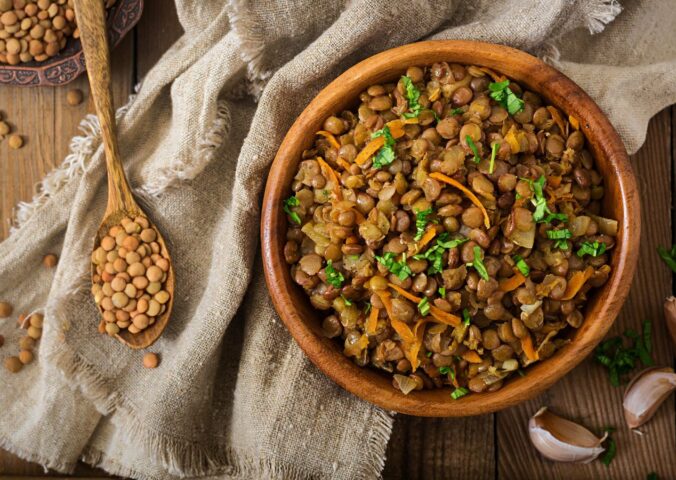The persistent rainfall over this past winter has left fields across the UK flooded and too boggy for farmers to harvest or plant some crops. Now it might lead to price increases for foods including bread, beer, and biscuits.
Read more: How Extreme Weather In The UK Is Hurting Farmed Animals
According to an analysis by the Energy & Climate Intelligence Unit (ECIU), production of wheat, barley, oats, and rapeseed may be 4 million tonnes less than in 2023. That is a drop of 17.5 percent. The UK may need to import more of these crops from abroad, which could make some products more expensive.
This past winter has been the eighth wettest on record for the UK, and has left crop farmers struggling. The National Farmers Union (NFU) has warned the extreme weather driven by the climate crisis is now one of the biggest threats to UK food security.
Wheat harvests hit hard

Production of milling wheat used for making bread may be hit especially hard. It needs to be higher quality than wheat used for animal feed, which could be more difficult for farmers to achieve in current conditions.
UK millers usually source about 80 percent of wheat from British farms. That figure is likely to drop, with more wheat imported to make up the shortfall.
Read more: Non-Profit Vegan Café Appeals For Help Amid Cost Of Living Crisis
The cost of staple foods such as bread have already been rising in recent years. Inflation led to prices increasing by 16.6 percent from November 2021 to November 2022.
Cost of climate crisis
Extreme weather has already been raising the costs of the household grocery shop. A previous analysis by ECIU found that between 2021 and 2023, the average UK food bill rose by around £605.
“Given we expect climate impacts to get worse, it is likely that climate change will continue to fuel a cost of living crisis for the foreseeable future,” Professor Wyn Morgan, one of the authors of the analysis, said at the time.
Read more: UK Charity Offers Help To People With ‘Pets’ Amid Cost Of Living Crisis






